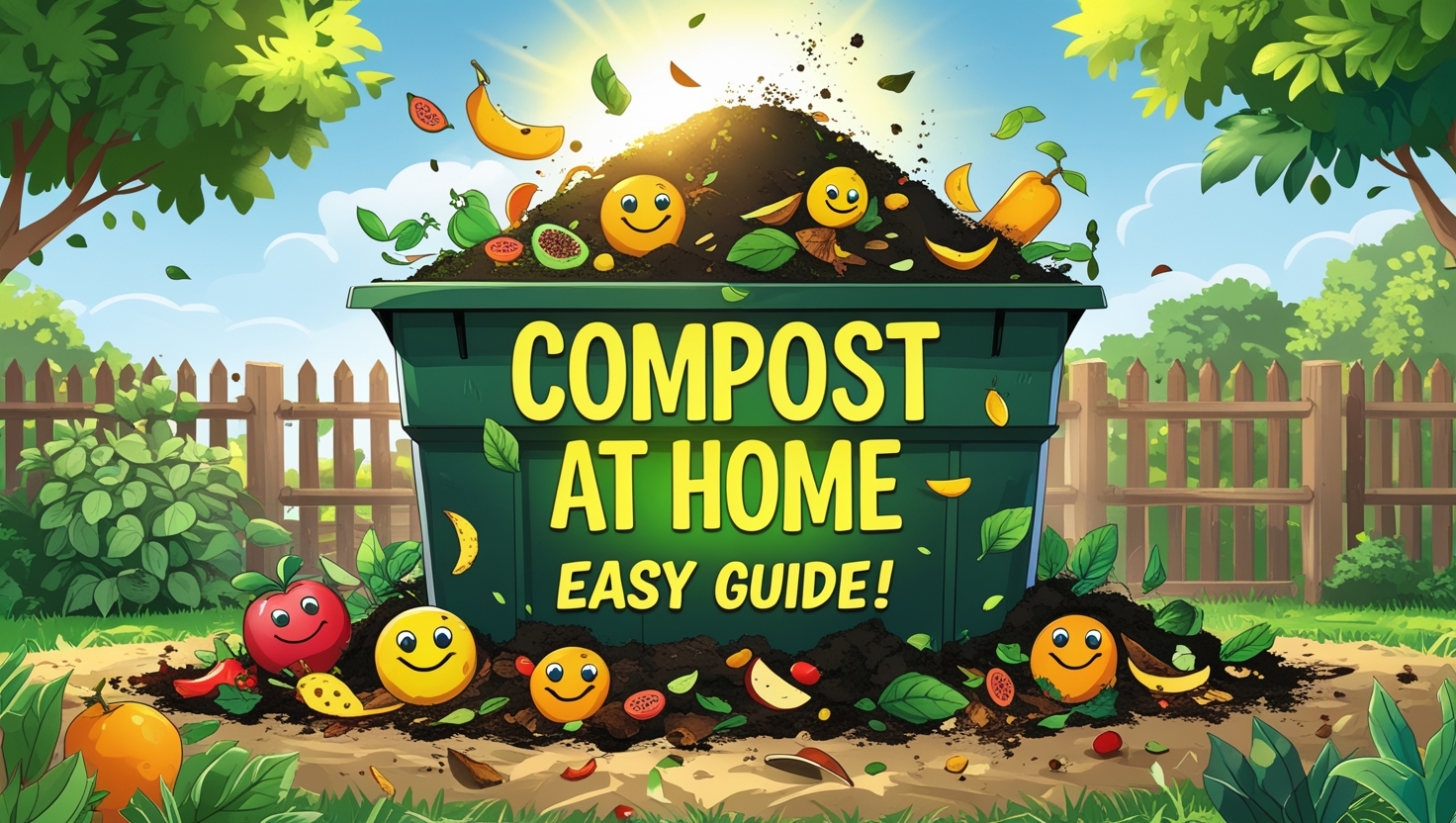

Home composting is a simple, eco-friendly way to reduce kitchen waste and enrich your garden soil. Whether you're living in a house with a backyard or an apartment with a balcony, you can turn your food scraps into nutrient-rich “black gold” and contribute to a more sustainable world. This beginner’s guide will walk you through everything you need to know to start composting today.
According to the U.S. Environmental Protection Agency (EPA), food scraps and yard waste together make up more than 30% of what we throw away—yet these materials could be composted instead. Composting reduces landfill waste, lowers methane emissions, and helps improve soil health. It’s also a fantastic first step for families exploring zero waste living.
There are several composting methods depending on your space and lifestyle. If you have a backyard, consider a traditional outdoor compost pile or bin. For apartment dwellers, an indoor compost bin or Bokashi bin is ideal. Vermicomposting with worms is also a great indoor option and a fun activity for kids.
Compostable items are divided into two categories:
For healthy compost, aim for a mix of about 2 parts browns to 1 part greens. Avoid meat, dairy, and oily foods, as they can attract pests and create odor.
Start your compost with a layer of browns, followed by greens. Continue layering as you collect more waste. Every 1–2 weeks, turn the pile to add oxygen and accelerate decomposition. Keep it moist, like a wrung-out sponge.
Use a bin with good airflow and a lid. Outdoor compost bins can be DIY or store-bought. Indoor options should have charcoal filters to reduce smell. NRDC’s Composting 101 guide has great bin ideas and tips for urban living.
In 2 to 3 months, you’ll notice dark, crumbly soil at the bottom of your bin—it’s ready! You can use this compost in your vegetable garden, potted plants, or flower beds. It improves soil structure, increases water retention, and boosts plant health.
Composting can be a fun, educational activity for kids. Let them help collect scraps, turn the bin, and watch the transformation process. It’s a great way to teach environmental responsibility early on.
At EarthWarriorz.org, we provide tools and resources to help families live sustainably. Whether you’re new to composting or teaching it in a classroom, we’ve got you covered.